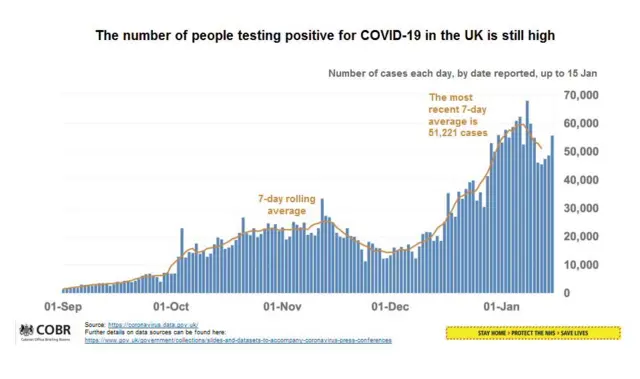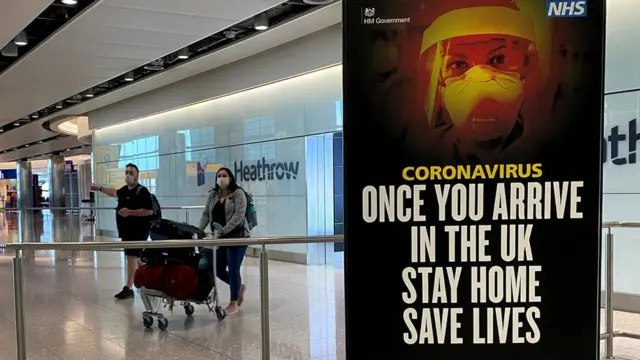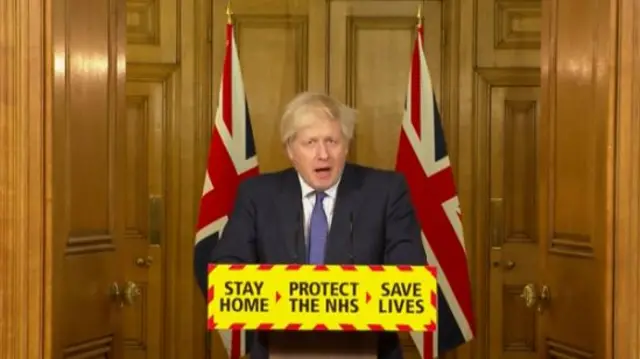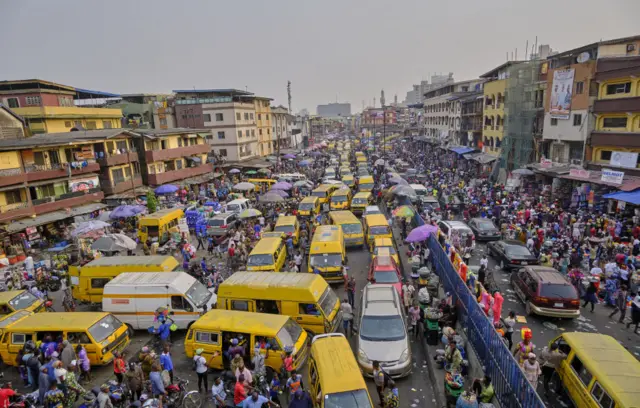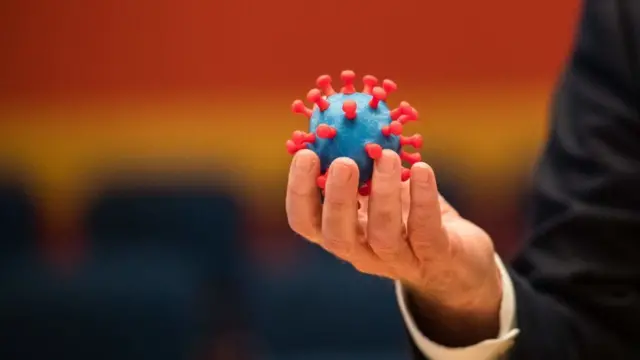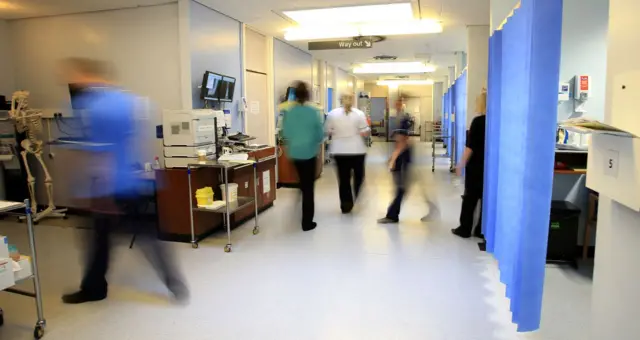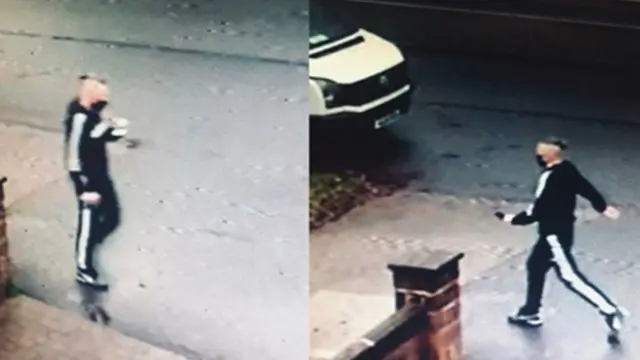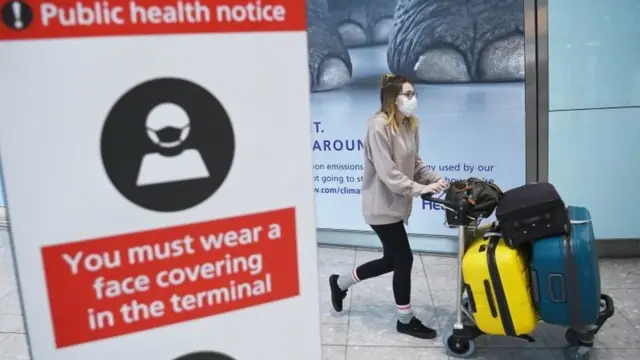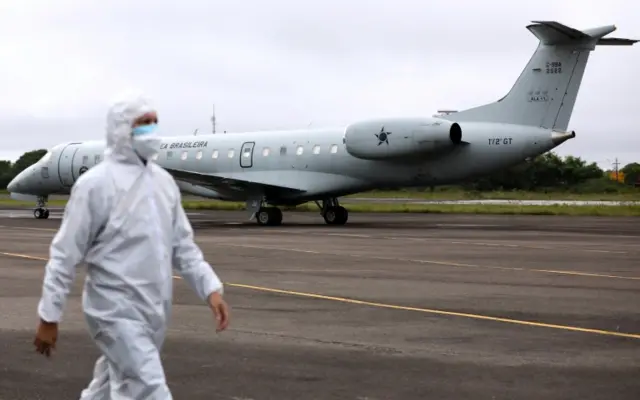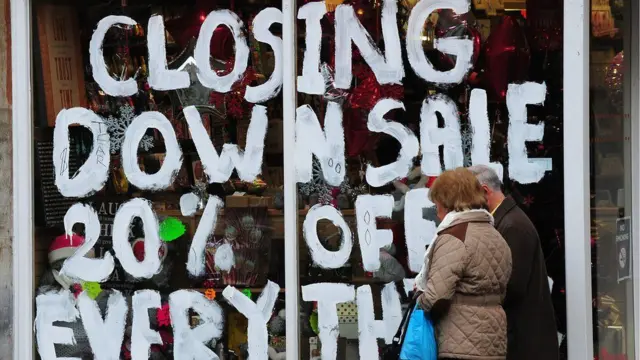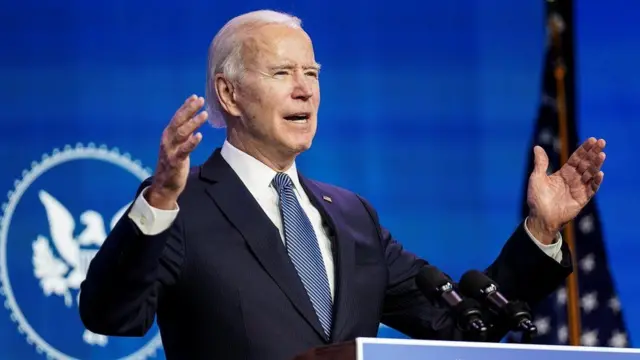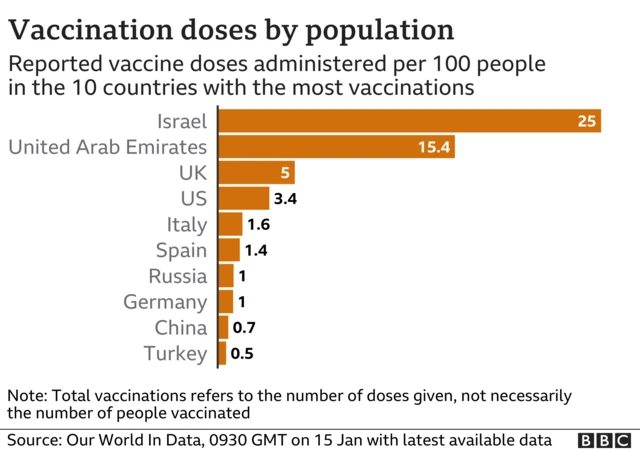Seriously ill people should still contact NHS - Whittypublished at 17:13 GMT 15 January 2021
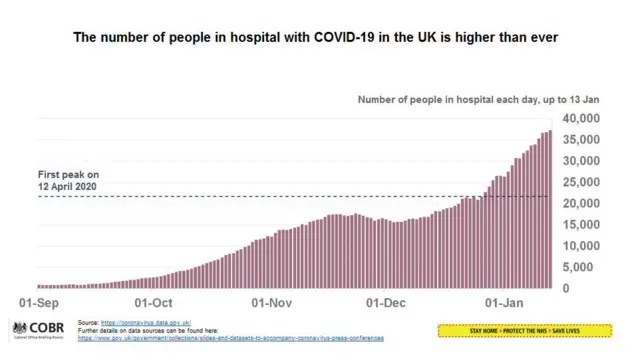 Image source, COBR
Image source, COBRProf Whitty says that the numbers in hospital lags behind cases and the number of people entering hospital is still rising in all parts of the country".
He says "we have well exceeded" the peak of the first wave but stresses that people with serious problems, such as heart attacks and strokes, should still contact the NHS.
